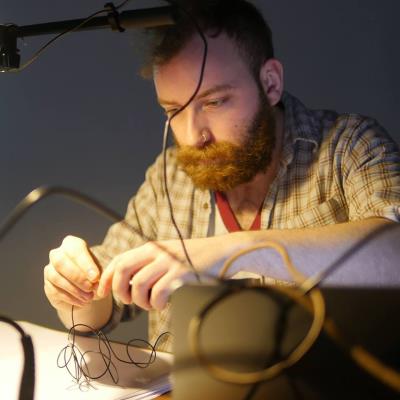»Ikke for at chokere«: James Black svarer Mathias Heise

I broadly agree with Mathias’ argument that a focus on novelty at the expense of other factors can be detrimental to the discussion of music. However, Mathias focuses on what critics have to say about music, with very little mention of the actual music that’s being produced nowadays. He mentions Wagner, Cage, Schoenberg, Reich – all these people were pushing boundaries (so the story goes), but they weren’t pushing the same boundaries. Music in Wagner’s day had a very different social and cultural function than music in Reich’s – and the same holds true of today. ‘Music’ is not one set, immutable object that we’ve now reached the limits of because we’ve been pushing the boundaries for hundreds of years. For this reason I agree with Mathias that terms like ‘innovative’ and ‘pioneering’ are sometimes more harmful than helpful, as they perpetuate the story that Music writ large won’t change until some (invariably white, invariably male) genius comes along and gives it a shove, and that can distract us from the more interesting, more personal aspects of a piece. When someone ‘dares to go against the spirit of their times’ (to borrow a phrase from the Pelle Prize), this is only as interesting as the music itself is. It’s not the same as saying ‘new = good’.
A professional critic attends countless concerts and as such may by habit focus in on the parts they haven’t heard before. Mathias joins composers and critics together, but in my experience I have more often disagreed than agreed with what critics have to say about what I’ve written. But it doesn’t bother me all that much – the piece that exists in my mind is different from the piece that exists in an audience member’s mind, as everyone brings their own baggage and interpretations along to the party.
I don’t consider myself to be a radical composer, I am just trying to write honestly. I don’t write to shock or provoke, and I definitely do not write with the aim of making the world a better place. I just try to write what I feel and what I would like to see. I believe that if you put yourself into the music you write then it will by definition be new, as no two people are identical. As Mathias notes himself, any attempt to consciously do something that hasn’t been done before can end in a kind of paralysis – but I think this is a very normal part of the compositional process. The next step is to throw off the paralysis and try to write something anyway. For me, this involves putting the ego aside, stopping trying to make The Best Piece of Art Ever, and just being honest with myself about what’s in my brain at that moment.







